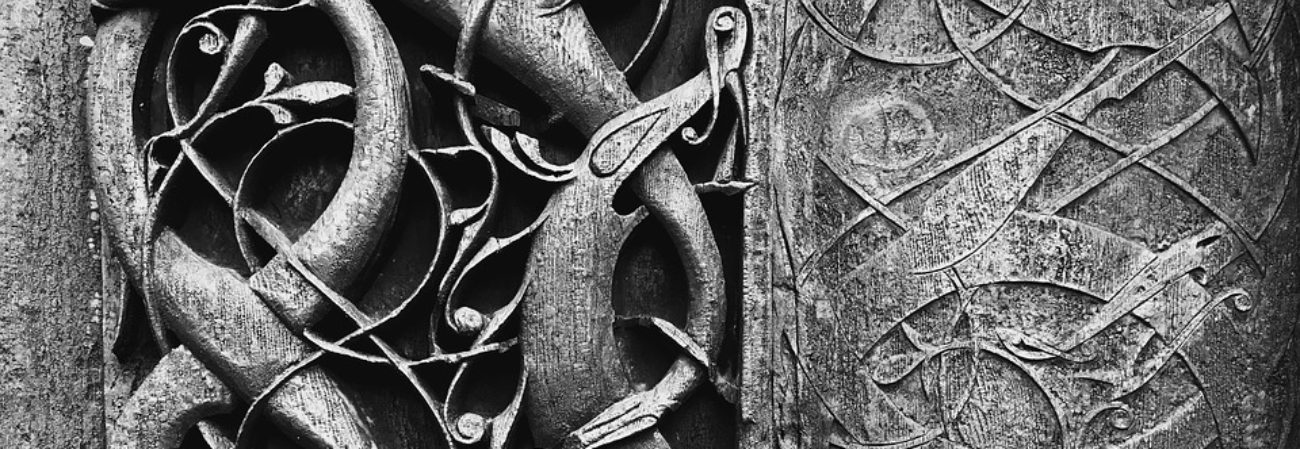Last week I talked about Jovan Vladimir and his clash with Ivan Vladislav. Ivan was an interesting and complex character, but his wife Maria is not as talked about. She has the distinction of being the last tsaritsa of Bulgaria.

Image courtesy of Wikimedia Commons
Some historians surmise that she was the daughter of Tsar Boris II and an unknown Byzantine noblewoman. In addition, Boris was the son of Maria Lekapena, a granddaughter of Emperor Romanos I Lekapenos of Byzantium. A Bulgarian priest, Paisij de Chilendar, identifies Maria as “a Greek woman, daughter of a magistros”. If this is true, by marrying her, Ivan would have cemented for himself his right to the Bulgarian throne, as well as marrying someone related to the currently reigning Macedonian dynasty. Perhaps Ivan had even grander ambitions of using Maria to eventually ascend the Byzantine throne as well. To the modern mind, this gives Ivan a sense of cold, calculation. Marriage amongst nobility in medieval Europe was political and an ever upward climb. If we assume that Ivan was as cold and calculating as his biographers indicate, his marriage to Maria was certainly not one of love. Perhaps we could assume she felt the same about him. She had several children attested to her with Ivan. They were Presian, Alusian, Aaron, Troian and Catherine, as well as Radomir and presumably an unknown son.
After her husband’s demise before the walls of Dyrrachium in 1018 (there are at least three versions as to how, exactly, he died) she expertly negotiated terms with the Byzantine emperor Basil II. This alone gives some credence to her noble upbringing and the respect with which the Byzantines accorded her. Furthermore, she was given the title of Zoste Patrikia, a very high honor and in fact one of the highest one could attain, short of empress. She was renamed Zoe, perhaps taking on the name from Basil’s niece who may very well have been her patroness. Paradoxically despite this honor, she was, even so, a part of the triumph, which by its very nature was designed to showcase a victory and subjugation of a conquered people. This fact could not have escaped her. I imagined such a triumph in The Bone Goddess: through the eyes of one of Basil’s Varangian Guardsmen, Ulf Svensson:
They waited patiently as all the elements of Basil’s triumph were carefully organized in the order in which they were to proceed into the city. Waiting behind them were the best of Basil’s victorious tagmata, and his thematic units, each bearing the banner of their themes. Eustathios Daphnomeles, as acting akolouthos, rode at Basil’s right. It should have been Micah in that place of honor. Micah who had stood side by side with them in numerous battles in the forests and glades of Bulgaria. Micah, the only friend he had ever had who truly understood the burden of the secrets he carried. Melancholy, at odds with the festive air, swept over him. Behind him, the dragon banner of the Varangian Guard whipped sharply in the wind. The finest horses from Ivan’s stables were ridden by members of the Anatolian aristocracy. Some of them were ridden by Ivan’s family and the families of his generals and boyars. Maria led this procession. Basil had remained unmoved by Maria’s impassioned pleas to be spared this humiliation. She must endure this and when it was done, she would be invested in the role of Zoste Patrikia for the remainder of her days. It was a great honor, not to be taken lightly. Perhaps it was for this and no other reason she rode her horse with her head held high. If she felt the sting of defeat, she was determined not to show it. Her daughters rode after her. All were clothed in green. Maria and her entourage were followed by a entourage of priests swinging censers. They were wreathed in ethereal smoke like twisting wraiths. At their center they bore an enormous icon of the Virgin. Following this, wagon after wagon of goods taken from Bulgaria. Most of it had been looted from Ivan’s palaces. The sun glanced off bronze amphorae, jewel encrusted chests and candelabrum of gilt bronze and inlaid with blue stones, so vivid he could see them from where he sat his horse in the procession.
Even though she was given high honor, it was likely that she was in fact, a political prisoner living in a gilded cage. Later, in 1029, not content with her cage, she along with her son Presian conspired against Emperor Romanos II Argyros. She was exiled and he was blinded.
